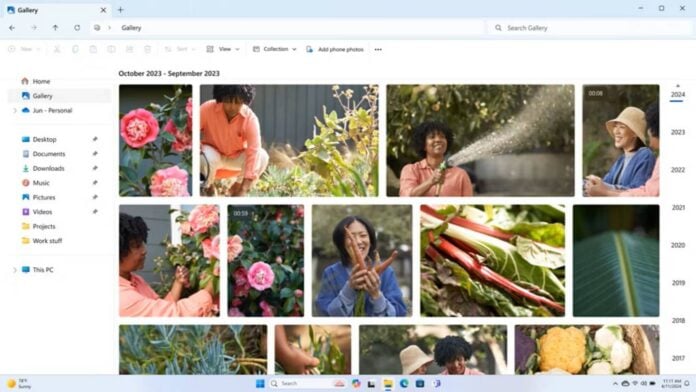Microsoft has acknowledged Windows 11’s File Explorer performance issues and has revealed a place to counter them, at least to some degree. The company is planning to preload File Explorer and keep it as a background task, popping back without delay when users open a folder or anything related. This change should provide users with a snappy experience, hopefully without taxing too many system resources. An important behaviour for such an integral system part.
Microsoft is adding this preload feature with its Insider Preview Build 26220.7271, which is available in Windows 11 Dev and Beta channels. It joins multiple changes and fixes to File Explorer, such as the missing scroll bar and footer when text is scaled in dark mode. Most importantly, the company indicated that using preloading shouldn’t impact the rest of the system, be it applications or background tasks.
“We’re exploring preloading File Explorer in the background to help improve File Explorer launch performance. This shouldn’t be visible to you, outside of File Explorer hopefully launching faster when you need to use it,” said Microsoft. In effect, from now on, File Explorer will be loaded during the system launch, so you no longer have to wait for it to open after a cold start. A welcome improvement, considering that many will have no choice but to upgrade to Windows 11 since Windows 10 is EOL.
That said, the feature will be optional, so if you are satisfied with the current speed of your system and prefer to keep it that way, you can disable this File Explorer preloading. The new option will appear as a checkbox labelled “Enable window preloading for faster launch times” on the Folder Options of File Explorer, under the View tab.

It is unclear, however, if these gains will also be felt on fast, modern machines. It will likely provide the most benefit to old PCs powered by slow drives, even if it eats up some RAM capacity. Either way, since the choice is available, we don’t see why you wouldn’t give it a try; worst case, you disable it. And if you like it but have encountered a bug, you can always report it via Feedback Hub under Files, Folders and Online Storage > File Explorer Performance.
Performance aside, Microsoft is also revamping File Explorer’s functionality, swapping the contact menu for a decluttered version without removing functionality. With this new design, frequently-used commands will remain fixed, while less-used secondary actions move to sub-groups.
Though Microsoft didn’t share any estimations, unless something wrong is spotted during the beta test, you can expect these changes to roll out to regular Windows 11 builds with upcoming updates.


